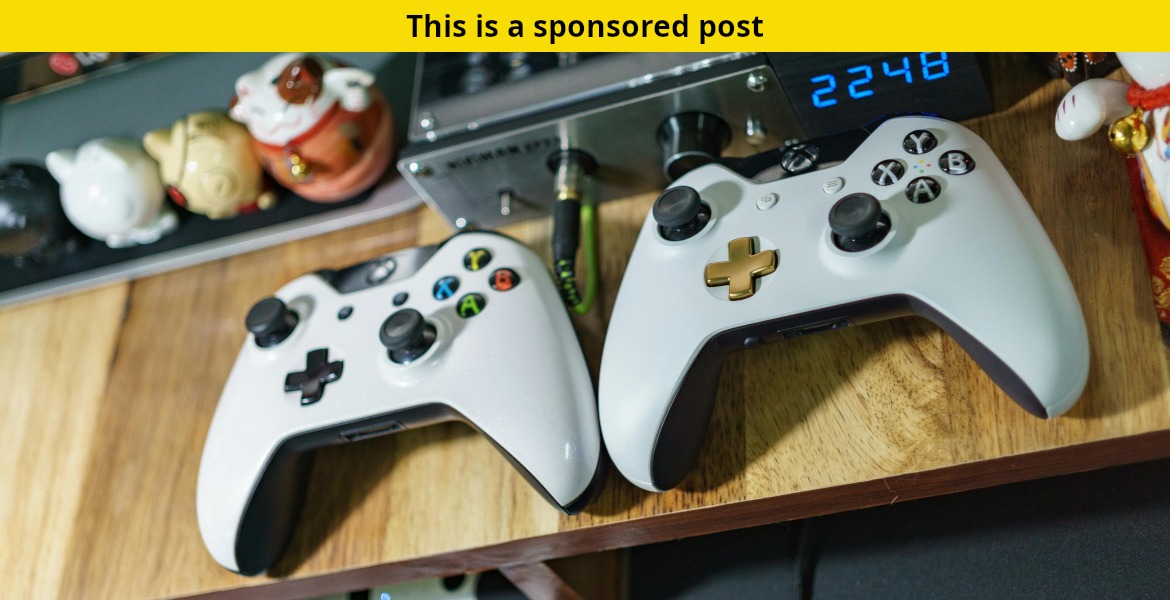Denmark’s gaming industry has really been advancing. In fact, looking at the statistics, Statista anticipates that it could continue growing by a CAGR of about 7.29% within the next few years to reach $437.4 million. Of course, several things, including the increased convenience of accessing entertainment, have contributed to this growth.
After platforms like Steam, Playstation Store and Xbox Game Pass emerged, a lot has changed in terms of how players access their favorite titles. Given that many gamers love such convenience, questions of whether physical gaming stores will become obsolete in Denmark have not ceased.
Thankfully, this article will go into the depths of this discussion, highlighting a few important points that will only leave you more informed.
The current landscape of game stores
A recent report by Rentech Digital noted that as of January 2025, there were about 157 game stores in Denmark. Compared to what things were like in 2023, this was an increase of about 1.24%. 80 of these game stores are owned by single persons, while the rest are part of larger brands. Looking at the geographical distribution, 61 are located in the Capital Region of Denmark, 39 in the Central Denmark Region and 25 in the Southern Denmark Region.
Remember, we said that part of the reason for the continued growth of Denmark’s gaming industry is the rise of online platforms. As such, several of these gaming establishments have also been building their online presence to increase their reach. With more than five billion people using social media platforms, you definitely would want to take advantage of this opportunity to reach more people.
Narrowing down to video game stores, there are 18 establishments nationwide, with 10 in the Capital Region and 6 in the Central Denmark Region. Prominent stores in Copenhagen include VR Racing Denmark and Noble Games Production.
The age of online platforms
Let’s take a niche sector like casino gaming, for instance. With the continued rise of online casino platforms, players can now engage in games conveniently anywhere at any time.
Mark you: 83% of customers claim that convenience is more important today than ever. Given this statistic, it actually makes sense to wonder whether online platforms will replace physical gaming stores or not.
Plus, these online companies are now taking advantage of technologies like AI to provide more engaging experiences. A good example would be personalization. Imagine visiting a platform that seems to understand you perfectly, providing recommendations that resemble your tastes. Well, this is an experience almost everyone would love.
Most experts say more than 81% of customers prefer personalized encounters. And given that nearly 73% want brands to understand their unique preferences and tastes, adopting this approach can really help online stores improve their edge.
But amid all these benefits, physical stores still seem to appeal to a considerable percentage of gamers. Can you imagine that, according to a recent YouGov study across 18 international markets, about 10% of respondents confirmed that they would still prefer buying video games from physical locations? With more than 3.3 billion people playing video games, this percentage is not something to ignore.
But you’d be surprised that, according to the YouGov poll, video games were the products consumers were less likely to buy from a physical store. In fact, if we were to narrow it down to Denmark, the study found out that only about 5% of video game players preferred brick-and-mortar purchases. Such data suggests a really uncertain future for traditional video game vendors.
The impact of cloud gaming
This is another looming challenge for physical stores. Platforms like Xbox cloud gaming allow players to access high-quality games without the need for expensive hardware or physical disks. With just any device and a good internet connection, you can play high-end games without breaking the bank.
Plus, you won’t need to keep updating hardware as the gaming resources are supplied by remote servers. And for those who prefer on-the-go gaming, the cloud offers an unmatched level of convenience. Such reasons explain why some research institutions expect the cloud gaming market in this country to grow by 41% to reach €125.90m by 2027.
At a time when life is becoming more expensive, and people are working hard to minimize their expenditures, we could actually see more Danish players resort to cloud gaming. By the way, do you know that an average physical gaming setup can cost at least $500? This is besides the maintenance fee, which could vary depending on the player.
Compare this to a scenario where you don’t have to spend any coin but still access the games online via your phone or laptop. Such factors may cause a good number of players to shift to the cloud.
The benefits of physical stores
While physical stores are facing significant challenges from their online counterparts, there are still features that can help them maintain a long-lasting appeal. Let’s talk about retro gaming, for instance. The appeal for retro is really growing in the country, providing good grounds for vintage consoles, rare game cartridges and many others to maintain their dominance.
The sense of community in these physical locations is also difficult to replicate in their online counterparts. Don’t forget that humans are social beings, and experiences that allow them to connect effectively are usually welcome. And that’s why, for some, events like midnight game releases, trading card tournaments and cosplay meetups are a thing.
And we haven’t even mentioned how tactile experiences like browsing shelves lined with colorful artwork can help create lasting memories that keep you returning to these stalls.
What should we look forward to?
Well, there might not be a one-size-fits-all answer to this question. But one thing is sure: If a physical gaming store is to survive the digital wave, then it must consider integrating digital components into its operations. Remember, we said that convenience has become a critical factor, and ignoring it might only harm your business performance.
But again, a considerable number of players seem to still love physical gaming stores. In fact, globally, 10% still do their game purchases in brick-and-mortar stores. So, to appeal to both traditionalists and digital converts, we may see physical stores adopt a hybrid approach to improve their relevance.
This means they may not really be faced off but will only adjust to stay ahead of the competition. But since these are mere speculations, you may want to keep monitoring the industry to see what could actually happen in the coming days.












